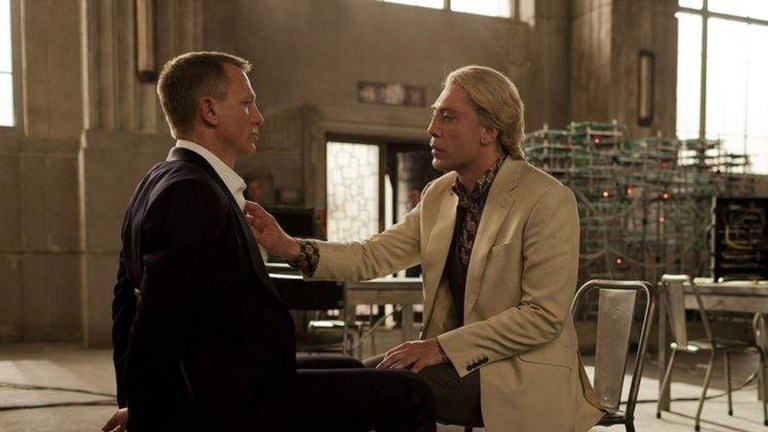Skyfall Screenwriter Fears Amazon Could ‘Drain’ James Bond of Life
Oscar nominated screenwriter John Logan writes candidly about why he fears for the James Bond franchise after Amazon’s purchase of MGM.

Screenwriter and producer John Logan has been around the Hollywood block. He cut his teeth in the 1990s on projects exactly about how Tinseltown can apply pressure on creative ambition—writing the first movie about the making of Citizen Kane with RKO 281—and he reached major success with credits on Gladiator and The Aviator. Yet if you asked him today which projects meant the most, he might say it was his James Bond contributions, Skyfall and Spectre.
Indeed, Logan appears to be feeling particularly concerned about 007 these days following the industry-shaking news that tech giant Amazon is purchasing MGM. Unto itself the development isn’t entirely shocking. MGM has appeared to be on life-support for more than 20 years. However, a tech company buying a once illustrious studio still feels like a glimpse into the future… particularly since it gives Amazon 50 percent ownership of the James Bond franchise.
Hence Logan penning an op-ed in The New York Times. While he acknowledges Eon Productions—which has overseen the Bond franchise for decades and is still essentially a family-run business led by half-siblings Barbara Broccoli and Michael G. Wilson—has ironclad control over the franchise, Logan fears corporate interests can still apply pressure.
“What happens if a bruising corporation like Amazon begins to demand a voice in the process?” Logan wrote. “What happens to the comradeship and the quality control if there’s an Amazonian overlord with analytics parsing every decision? What happens when a focus group reports they don’t like Bond drinking martinis? Or killing quite so many people? And that English accent’s a bit alienating, so could we have more Americans in the story for marketability?”
Logan knows from his own experience in the industry—even in eras before terms like “streaming” and “analytics” were spoken with grave concern—that these things will come up. He even points to personal experiences of “corporate” interests wanting to change the ending of Gladiator so Russell Crowe’s Maximus might live, or internal studio polling which suggested they take the songs out of Sweeney Todd.
“From my experience, here’s what happens to movies when such concerns start invading the creative process,” said Logan. “Everything gets watered down to the most anodyne and easily consumable version of itself. The movie becomes an inoffensive shadow of a thing, not the thing itself.”
Logan (rightfully) credits the Broccoli family as the reason the Bond franchise has endured so persuasively through the decades. Tastes and movie trends change year to year, and decade to decade, but the family that’s at least been one-half of the creative impetus of the series since 1962’s Dr. No has remained in place, shepherding the series from a place of passion. According to Logan, working on the creative process of a Bond film is like a lively discussion at a family table, one where no executives are present to run the numbers on an idea.
“That’s why we don’t have a mammoth Bond Cinematic Universe,” Logan explained, “with endless anemic variations of 007 sprouting up on TV or streaming or in spinoff movies. The Bond movies are truly the most bespoke and handmade films I’ve ever worked on. That’s why they are original, thorny, eccentric and special. They were never created with lawyers and accountants and e-commerce mass marketing pollsters hovering in the background.”
And it’s true, there is something refreshingly old-fashioned about 007, and we don’t just mean his insistence on formal wear and dry martinis. While Bond is a franchise crafted around convention and formula, each era of 007 seeks to find its own voice, and even its own Bond. They’re also content with being singular, standalone cinematic experiences that occur only every few years. Having a franchise film you’re allowed to just sit with, and consider independently from its franchise, as opposed to view merely as the latest cog in an inter-connected media strategy’s ceaselessly spinning wheel, feels like a balm in 2021.
You don’t walk out of a Bond movie worried about the glorified teaser trailer for the next one in four months which ran over the end credits.
As Logan noted when bigger corporations start getting their fingerprints on iconic characters, the priority becomes quantity instead of quality. The screenwriter rather tellingly even names Disney’s acquisition of Star Wars when adding, “The quality differential can vary wildly, project to project.”
So here’s a drink to hoping Bond never ends up spawning multiple streaming series spinoffs—or worse one day premieres exclusively on Amazon Prime.
